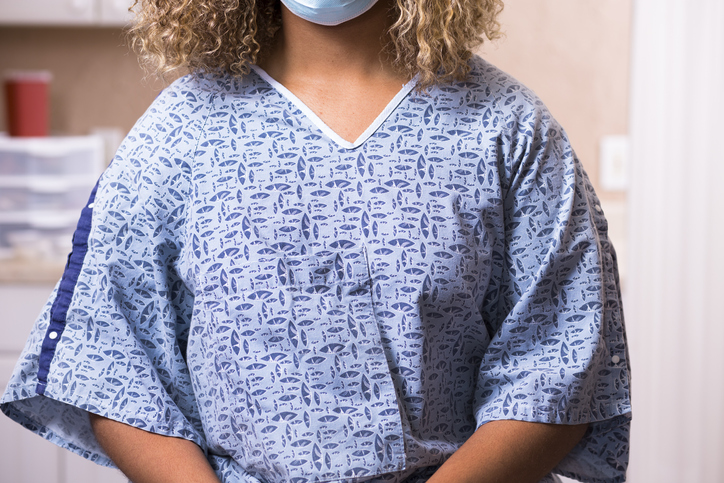Long COVID refers to a range of persistent symptoms that can linger for weeks, months or years after...
Read More

There are several minor side effects to getting a COVID-19 vaccine, such as redness at the injection site, fatigue and muscle pain. In addition, a less common side effect is swollen lymph nodes under the arm on the same side as the vaccine injection. Though this is a normal immune reaction to a vaccine, it could be a rare sign of breast cancer.
But there are major health risks when it comes to delaying an important screening like a mammogram and a COVID-19 vaccine. Here’s what to know about mammograms and the COVID-19 vaccine.
Swollen lymph nodes are a common immune response to vaccination and often return to normal size after a few days.
“The lymphatic system is part of the immune system. It circulates infection-fighting white blood cells," said Allison Lawyer, M.D., Chief Radiologist of Mammography at Inspira Health Medical Imaging. "The goal of a vaccine is to allow our immune system to build a response to a specific pathogen. If our lymph nodes are swelling, it means our immune system is fortifying the body by building antibodies."
It’s best to schedule your mammogram before your first or only dose of the COVID-19 vaccine, or at least four weeks after your second dose. This will lower the risk of swollen lymph nodes appearing on your mammogram.
“If you are overdue for your screening or cannot reschedule within the next few months, keep your mammogram and COVID-19 vaccine appointments,” said Larry Neustadter, D.O., chair of the Inspira Department of Radiology. Remember that both appointments save lives. You do not have to sacrifice one appointment for the other. “If you’re scheduled for a mammogram after your COVID-19 vaccine and experience swollen lymph nodes, don’t panic. We’ll compare your mammogram results to your medical history at the time of your vaccination. We may recommend an ultrasound or extra appointment to see if the swelling is going down,” said Dr. Lawyer.
At your appointment, inform your technician about your vaccination status. This should include when you got vaccinated; whether it was your only, first or second dose; and in which arm. This information will help the breast radiologist interpret your mammogram. “Women must get both their mammograms and vaccines as soon as possible to reduce major health risks,” said Dr. Lawyer. “The risks of a benign lymph node appearing on your mammogram does not outweigh the risks of delaying your screening.”
Annual cancer screening saves lives. Keep your mammogram appointment if you are overdue for screening. Speak to your OB/GYN if you have noticed changes in your breast or underarm and received your last COVID-19 vaccine between four and six weeks ago.

Long COVID refers to a range of persistent symptoms that can linger for weeks, months or years after...
Read More
Painful periods are not indicators of good fertility. Rather, they may signal underlying health...
Read More
Maximizing the benefits of Menopausal Hormone Therapy is all about balance. Learn how simple...
Read More
The material set forth in this site in no way seeks to diagnose or treat illness or to serve as a substitute for professional medical care. Please speak with your health care provider if you have a health concern or if you are considering adopting any exercise program or dietary guidelines. For permission to reprint any portion of this website or to be removed from a notification list, please contact us at (856) 537-6772